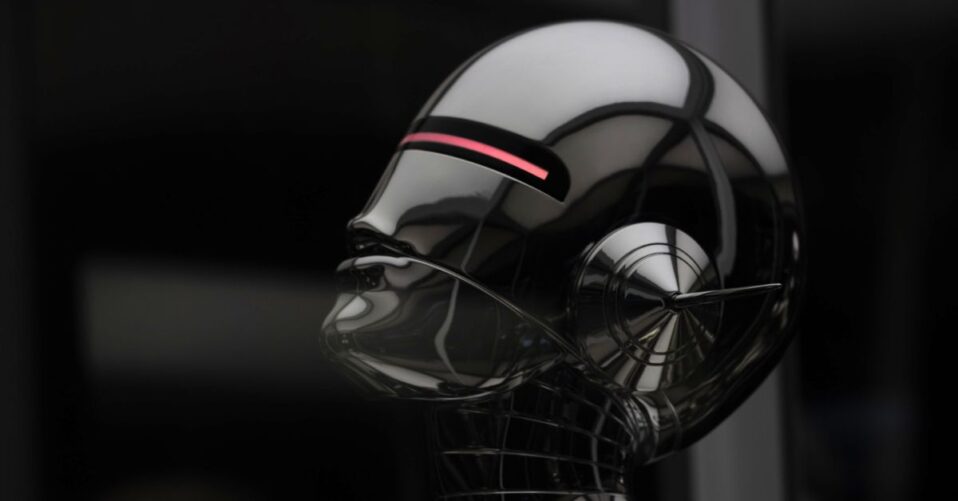By: Akos Balogh
Whether we like it or not, AI is here to stay.
And so, the question is not whether we adopt AI into our lives but how we adopt it. Our workplaces will gradually (or not so gradually) introduce AI technology, impacting our jobs. Our schools will adjust to a chatGPT (or whatever comes next) world, where students have access to one of the most powerful tools on the planet. And our families will soon be flooded with marketing spruiking all the latest AI technology.
How do we make sense of it all? What principles can we use to think through what we adopt and how we adopt it?
Here are seven high-level Christian principles, with some practical examples of how we might implement them.
1) We are Image Bearers of God, Not Biological Machines
Unlike anything else in the Universe, human beings are created in God’s image (Gen 1:27).
This divine imprint gives us a unique dignity, differentiating us from machines, let alone any other creation (Divine or human). While there is much discussion about what exactly being in God’s image means, at the very least, it means that we are not merely biological machines, let alone random evolutionary accidents in a meaningless world.
We have inherent God-given worth and dignity that no machine could ever possess (no matter how intelligent they become). We have a unique relationship with God that no animal or piece of technology could have. We are eternal beings who will be resurrected on the last day, either to eternal life or eternal judgement (Daniel 12:2). We are inheritors of the new creation, who will dwell with God face to face for all eternity (Rev 21:1-4).
Yes, we are limited. Yes, we eventually wither away and die. Yes, we are under the curse of death. But that is not an argument to give up our humanity and upgrade our ‘hardware’ (i.e. our biology) to ‘Life 3.0’, as the author and MIT professor Max Tegmark argues in his book of the same name:
‘[D]espite the most powerful technologies we have today, all life forms we know of remain fundamentally limited by their biological hardware. None can live for a million years…or enjoy spaceflight without a spacecraft. None can transform our largely lifeless cosmos into a diverse biosphere that will flourish for billions or trillions of years, enabling our Universe to finally fullfill its potential and wake up fully.’ (29)
At the very least, this means that we must treat humanity not merely as a means to an end (e.g. a step along the evolutionary chain to something better) but as an end in itself. As we’ll see below, AI and technology must be designed to serve human beings, not vice versa.
2) We are Relational Beings
No man is an island.
As humans, we’re designed to connect with others (Gen 1-2). We thrive on connection – the shared laughter, the comfort in times of sorrow, the shared experiences. No matter how sophisticated, AI cannot replace the richness and depth of human relationships.
As we navigate the digital age, we should harness AI to strengthen human connections, not dilute them. We should use technology in a way that brings us closer together, not drives us further apart into our electronic silos. Sadly, AI is only making digital entertainment even more compelling (or addictive), meaning people are likelier to be stuck in their silos, whether on their screens or VR goggles.
3) We are thinking beings and shouldn’t outsource our thinking to machines
Our ability to think, ponder life’s mysteries, seek wisdom and knowledge, and be creative is part of God’s design for us. It sets us apart from the rest of God’s creation.
It’s what allows us to invent, innovate, and even create AI in the first place. But in doing so, we must be careful not to trade our God-given ability for convenience. We should leverage AI to enhance our cognitive capacities, not surrender them. When we outsource our thinking to machines, we risk losing an essential part of our human ability, if not our identity.
4) We are Created to Work: AI Should Not Replace Us
God designed us to be workers (Gen 1: 26-28).
Yes, work is affected by the fall (Gen 3:17-19), but it predates the fall. It’s a good thing that God wants us to do. And so this is where we need to think very carefully about how we adopt AI. AI should be seen as a tool to augment and support human effort, not replace human effort in toto.
While AI will – like all technology – transform the way we work (think about how the industrial revolution and computers have changed our work), AI must not be designed to replace humanity. One way ahead is to think about the different areas of work that AI could streamline or automate and how this might open new and exciting job opportunities.
5) We Must Not be Governed by Machines
As stewards of God’s creation, we have a responsibility to govern wisely.
We should direct AI to serve humanity, not let it dominate us. Right now, it may seem unlikely to have AI ruling over our lives. But think of it this way: how many important decision-making roles will we outsource to AI if we reckon machines can do a better job? Right now, some jurisdictions in the USA have outsourced legal decisions to AI, such as whether to give prison inmates parole. Financial companies are outsourcing decisions about whether to give someone a loan. And Uber – at least for a while – largely managed its drivers via AI (until there was a backlash).
Would we be happy outsourcing more of our policing to AI, especially if it meant catching more criminals? What about Centrelink and other governmental department decision-making?
As AI gets better, these questions will increasingly come up.
We must not take humans out of the decision-making loop when making important decisions about people’s lives. There must be human oversight, whether it be judicial decisions, weapons systems, or managing people.
6) Just Because Something CAN Be Done, Doesn’t Mean it Should
In the realm of AI, possibilities seem endless.
But limitless potential doesn’t mean all actions are beneficial or morally right. It is crucial not only to ask if we can but also if we should. AI should be put in the same category as bioethics or nuclear energy. It needs to be managed very carefully, with wisdom and discernment.
In practice, this means asking questions about the impact of AI on us: What are the benefits of using particular AI technology? What are the trade-offs? What do we lose by using AI, and is the loss worth it?
7) AI Should Serve Humanity, Not Vice Versa
Finally, AI should be a tool for human flourishing.
AI is here to serve us, to help us flourish as image bearers of God, not to reduce us to mere operators or consumers. AI must enhance human dignity, not erode it. It has enormous potential to help us to be more productive, solve problems, and improve our quality of life. But we need to think carefully about how we use it in such a way that it helps us do just that rather than leading us down dystopian pathways.
Article supplied with thanks to Akos Balogh.
About the Author: Akos is the Executive Director of the Gospel Coalition Australia. He has a Masters in Theology and is a trained Combat and Aerospace Engineer.




